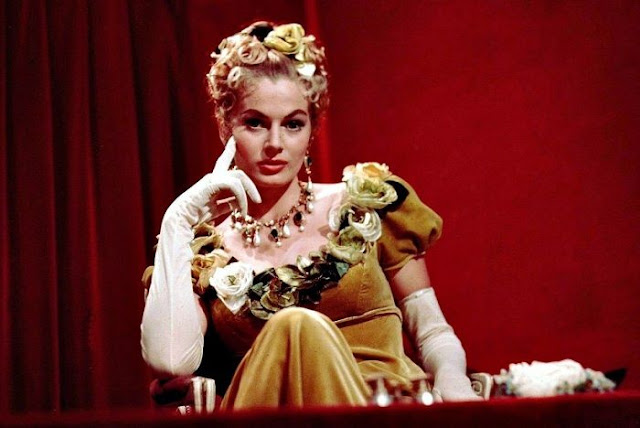Notes
on War and Peace: Tolstoy the Humorist
As Russian writers go, Tolstoy
does not stand out for his humor. Not, at least, in comparison to Gogol or
Bulgakov. Even Dostoevsky relies more on humor in his works than Tolstoy does—though
Dostoevsky’s humor is dark and warped. But when Tolstoy wants to write funny
passages he is well capable of doing so.
Probably the best example of humor
in War and Peace comes in Vol. 3, Part 3, Ch. 6-7, featuring the most dissolute
character in the whole novel, Hélène, wife of Pierre Bezukhov. Here we have Hélène,
still married to Pierre but conducting simultaneous affairs with an old dignitary
and a young foreign prince, and mulling over which of these men to marry. She
decides to turn Catholic, somehow convincing herself that by switching
religions she will be able to discard an unwanted husband and acquire a new
one. Here’s the beginning of Chapter Seven:
“Hélène realized that the case was
very simple and easy from the spiritual point of view, but that her spiritual handlers
[the ones who had turned her to Catholicism] were creating difficulties only
because they feared how the secular authorities would view this business.
“Consequently, Hélène decided that
the matter had to be prepared for in social circles. She provoked the jealously
of the old dignitary, telling him the same thing she had told the first suitor
[the foreign prince], that is, she made it clear that the only way of obtaining
rights to her consisted in marrying her. For a moment the old grandee was just
as astounded by that proposal to marry while married to a living husband as the
first young suitor had been; but Hélène’s unshakable conviction that this was
as simple and natural as would be the marriage of a young maiden ended up
convincing him.
“If Hélène had manifested even the
faintest signs of hesitation, shame, or secretiveness, her case would have been
certainly lost; but not only were there no signs of secretiveness or shame; on
the contrary, with simple and good-natured naivety she informed her close
friends (and that meant all of Petersburg) that both the prince and the grandee
had proposed to her, and that she loved them both and feared upsetting either
of them.
“The rumor spread instantly throughout
Petersburg, not that Hélène wanted to divorce her husband—had such a rumor spread,
a great many people would have declared their objection to such an unlawful
intention—but simply that the unfortunate, but ever interesting Hélène was in a
quandary over which of two men to marry. The matter now consisted not in the
degree to which this was possible, but only in which match was more
advantageous and how the court would view it . . . .
“Only Marya Dmitrievna Akhrosimova,
who was in Petersburg that summer to visit one of her sons, allowed herself to
express her frank opinion, which ran counter to that of society. Meeting Hélène
at a ball, Marya Dmitrievna stopped her in the middle of the ballroom and,
amidst a general silence, said to her in a gruff voice:
‘So now you’re out to get yourself
married while married already to a living husband. Maybe you think you’ve come
up with something novel, do you? But no, dearie, it’s been done before.
Somebody came up with this a long time ago. This is what they do in any …….
[bordello].’”
Later the comedy is compounded. Hélène
sends her husband Pierre a loving letter, informing him of her plans to marry.
Pierre reads the letter only upon his return—disillusioned and enervated—from the
battlefield at Borodino. Disjointed thoughts race through his head: “Them—the
soldiers on the battery, Prince André killed . . . the old man . . . Simplicity
means submission to God’s will. We must suffer . . . the meaning of it all . .
. got to harness the carriage . . . my wife is getting married . . . one must
forget and understand . . .” (Vol. 3, Part 3, Ch. 11).


No comments:
Post a Comment